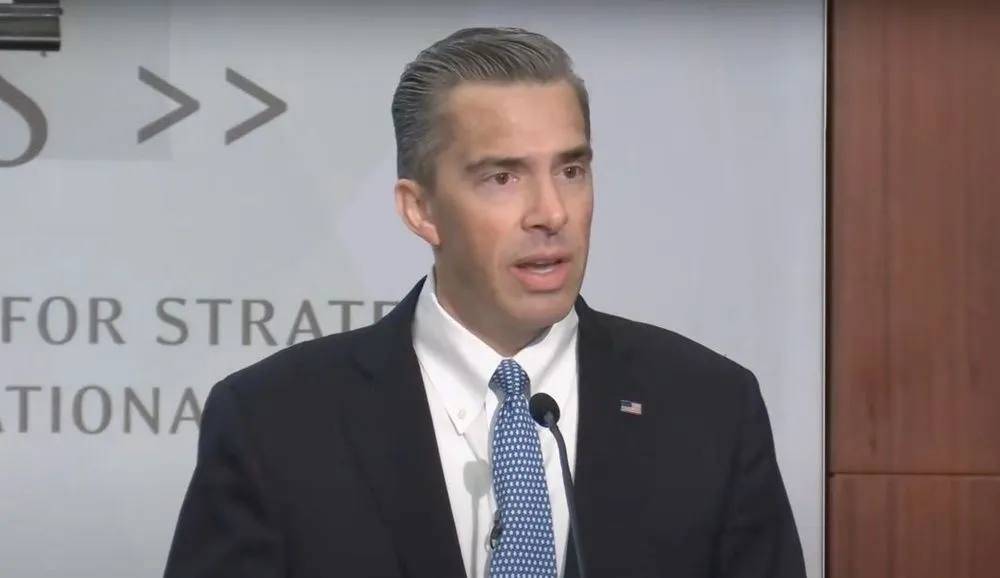Failing to renew Section 702 ‘will have significant costs for US diplomacy,’ top State official says
U.S. diplomatic efforts around the globe would suffer if Congress fails to renew a foreign surveillance tool before it lapses at the end of the calendar year, the head of the State Department’s intelligence branch warned Tuesday.
“Make no mistake, the future without 702, or a much diminished 702 program, will have significant costs for U.S. diplomacy,” said Brett Holmgren, assistant secretary for intelligence and research, referring to Section 702 of the Foreign Intelligence Surveillance Act.
The 702 program, revealed 10 years ago by former NSA contractor Edward Snowden, allows the federal government to collect the emails and electronic communications of foreign intelligence directly from tech giants but also picks up the personal data of Americans. It was renewed in 2018 and will expire at the end of the year without congressional action.
In a speech at the Center for Strategic and International Studies in Washington, Holmgren said the information gleaned through the program represents one of the “most important streams” of data to the Bureau of Intelligence and Research, or INR.
“In 2022 alone a large percentage of INR’s finished analytic products included 702 reporting, oftentimes 702 data was the most valuable source underpinning these assessments,” he told the audience. “As one of my managers put it, INR would not be able to fulfill its mandate to use intelligence to empower diplomacy without 702-derived reporting.”
Holmgren’s remarks make him the latest in a veritable parade of Biden administration officials who have publicly called for the program’s renewal, arguing it is essential to combating overseas hackers, spies and terrorists.
However, long-standing privacy fears, recent revelations of past abuse by the Federal Bureau of Investigation and a bitterly divided Congress have imperiled the administration’s renewal push, with policymakers on both sides of the aisle demanding reforms.
Holmgren shared top-level details of “real world” examples where Foggy Bottom has utilized the spy program, such as employing it to “monitor and evaluate” Russian activities in Ukraine like the murders of non-combatants, the forced relocation of Ukrainian children and the detention of fleeing refugees.
He shared other, high-level details of formerly classified examples that involved 702, including allowing the department to warn the international community about North Korea’s efforts to deploy IT workers to commit fraud against global industry in order to generate revenue for its illicit nuclear weapons program.
In another instance, American diplomats were able to call out an unnamed Middle Eastern country “over its efforts to monitor and track dissidents abroad, as well as dissidents right here in the United States.”
And the bureau used 702 data to expose efforts by foreign powers, including China, to “coerce nations to oppose international responses to human rights violations,” according to Holmgren.
He stressed that his agency was a consumer of 702 intelligence, not a producer, and called the recently declassified opinions of the court that oversees the effort that found thousands of abuses by the FBI “disturbing and unfortunate.”
“But the fact that those came to light was because of the reporting and the transparency requirements that have been instituted by the Director of National Intelligence,” Holmgren said.
He declined to comment directly on the years-old policy debate about whether FBI analysts should be required to obtain a warrant before querying the massive 702 database.
“I would just say that anything that diminishes the amount and the value of the intelligence that we currently receive at the State Department, from 702-derived reporting … would have a negative impact on the work of our analysts to produce their assessments and the support that we provide to our diplomats,” Holmgren said.
“We want more of it, because it's incredibly valuable for our folks. So anything less than that, or if the value is diminished, it's going to impact our mission.”
Martin Matishak
is the senior cybersecurity reporter for The Record. Prior to joining Recorded Future News in 2021, he spent more than five years at Politico, where he covered digital and national security developments across Capitol Hill, the Pentagon and the U.S. intelligence community. He previously was a reporter at The Hill, National Journal Group and Inside Washington Publishers.



